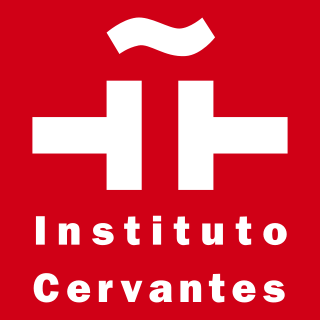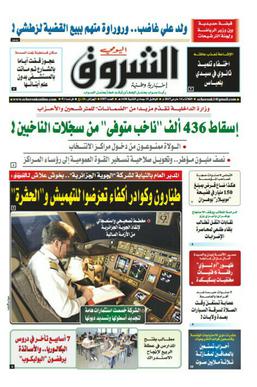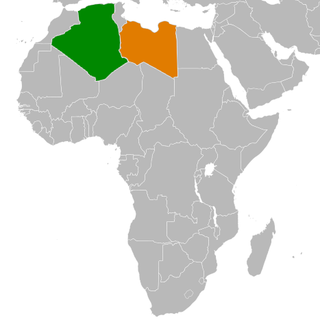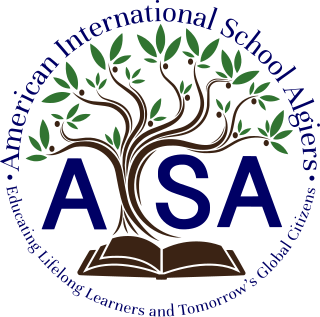
Since its independence from France in 1962, Algeria has pursued an activist foreign policy. In the 1960s and 1970s, Algeria was noted for its support of Third World policies and independence movements. Since its independence, Algeria has been a member of the Arab League, the African Union and of the United Nations.

The British Council is a British organisation specialising in international cultural and educational opportunities. It works in over 100 countries: promoting a wider knowledge of the United Kingdom and the English language ; encouraging cultural, scientific, technological and educational cooperation with the United Kingdom. The organisation has been called a soft power extension of UK foreign policy, as well as a tool for propaganda.

The Goethe-Institut is a non-profit German cultural association operational worldwide with 159 institutes, promoting the study of the German language abroad and encouraging international cultural exchange and relations. Around 246,000 people take part in these German courses per year.

The official languages of Algeria are Arabic and Tamazight (Berber), as specified in its constitution since 1963 for the former and since 2016 for the latter. Berber has been recognized as a "national language" by constitutional amendment since 8 May 2002. In February, 2016, a constitutional resolution was passed making Berber an official language alongside Arabic. Algerian Arabic and Berber are the native languages of over 99% of Algerians, with Algerian Arabic spoken by about 90% and Berber by 10%. French, though it has no official status, is still used in media and education, due to Algeria's colonial history. Kabyle, the most spoken Berber language in the country, is taught and partially co-official in parts of Kabylie.

Instituto Cervantes is a worldwide nonprofit organization created by the Spanish government in 1991. It is named after Miguel de Cervantes (1547–1616), the author of Don Quixote and perhaps the most important figure in the history of Spanish literature. The Cervantes Institute is the largest organization in the world responsible for promoting the study and the teaching of Spanish language and culture.

The Islamic World Educational, Scientific and Cultural Organization is a specialized organization that operates under the aegis of the Organization of Islamic Cooperation (OIC), and is concerned with fields of education, science, culture and communication in Islamic countries in order to support and strengthen relations among Member States. The Organization's headquarters is located in Rabat, Morocco, and its Director General is Dr. Salim M. Almalik.

The Instituto Camões, formally, Camões — Instituto da Cooperação e da Língua, I. P., is a Portuguese international institution dedicated to the worldwide promotion of the Portuguese language, Portuguese culture, and international aid, on behalf of the Government of Portugal. Headquartered in Lisbon with centers across five continents, the mission of the Instituto Camões is the promotion of Portugal's language, culture, values, charity, and economy. The institution is named for Portuguese Renaissance author Luís Vaz de Camões, considered the greatest poet of the Portuguese language and the national poet of Portugal.
Baku Slavic University (BSU) is a public university located in Baku, Azerbaijan.

The University of Algiers, commonly called the Algiers 1 University, is a public research university located in Algiers, Algeria. It is the oldest and most prestigious university in Algeria. Emerging from a series of independent institutions in the 19th century, it was organized as a university in 1909 and profoundly reorganized in 2009.
The Estonian Institute is a non-governmental and non-profit organisation based in Tallinn aiming to promote Estonian culture abroad. The institute was founded in 1988/1989 as a shadow foreign office for the Estonian independence movement by Lennart Meri, later first foreign minister and first president of Estonia after their Soviet occupation. Current director of the institute is Katrin Maiste.

Echorouk or Ech Chorouk El Youmi is a daily newspaper in Algeria published Saturday to Thursday in the tabloid format. It is the second-largest daily Arabophone newspaper.

In July 2001, President Abdelaziz Bouteflika became the first Algerian President to visit the White House since 1985. This visit, followed by a second meeting in November 2001, and President Bouteflika's participation at the June 2004 G8 Sea Island Summit, is indicative of the growing relationship between the United States and Algeria. Since the September 11 attacks in the United States, contacts in key areas of mutual concern, including law enforcement and counter-terrorism cooperation, have intensified. Algeria publicly condemned the terrorist attacks on the United States and has been strongly supportive of the international war on terrorism. The United States and Algeria consult closely on key international and regional issues. The pace and scope of senior-level visits has accelerated.

Algeria has more than 45 independent Arabic language and French language publications as well as 4 government-owned newspapers, but the government controls most printing presses and advertising. The Algerian newspapers with the largest circulations are Echourouk (1,800,000), Ennahar (1,600,000), El Khabar (1,000,000) and Quotidien d'Oran (700,000); all four are employee-owned. In 2004 and 2005, the government increased the access of Berber language and culture to both print and broadcast media.

Russia has an embassy in Algiers and a consulate in Annaba, and Algeria has an embassy in Moscow. Algeria currently enjoys very strong relations with Russia. The Russian embassy is located in Algiers and the Algerian embassy is located in Moscow.

Relations between Algeria and Libya are considerably strained by tensions between the revolutionary National Transitional Council (NTC) of Libya and the single-party autocracy of President Abdelaziz Bouteflika of Algeria. Bilateral relations were generally amicable during Muammar Gaddafi's 42-year rule of Libya.

Algeria–Mexico relations are the diplomatic relations between the People's Democratic Republic of Algeria and the United Mexican States. Both Algeria and Mexico are members of the Group of 15, Group of 24 and the United Nations.

The French language became an international language in the Middle Ages, when the power of the Kingdom of France made it the second international language, alongside Latin. This status continued to grow into the 18th century, by which time French was the language of European diplomacy and international relations.

The American International School of Algiers, abbreviated as AISA, is a private, coeducational, international school based in Algiers, Algeria. It provides an academic program for English-speaking students from kindergarten to the seventh grade, taught by U.S. educators.

English is a widespread lingua franca of Algeria according to the CIA World Factbook.

Relations between Germany and Algeria are described as "good" by the German Federal Foreign Office. Germany is among Algeria's most important trading partners. The two countries concluded an energy partnership in 2015.

















